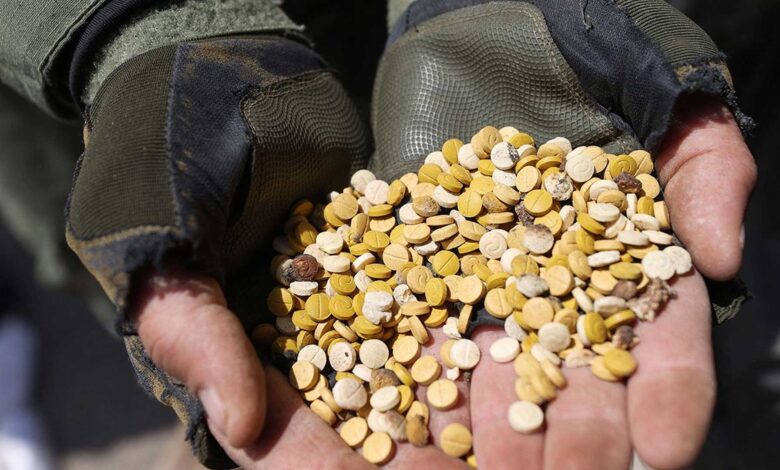Inside Sudan’s Captagon War Economy and UAE Links
By Dark Box Investigations

Deep inside an industrial compound near Khartoum, Sudanese authorities recently uncovered a fully operational captagon factory capable of producing 1,000 pills per hour. Machines, chemicals, and shipping labels paint a damning picture: Sudan’s civil war is now entwined with a lucrative drug trade feeding fighters and smuggling routes linked to UAE logistics hubs.
Captagon’s Migration: From Syria to Sudan
Once synonymous with Syria’s Assad regime, captagon—a cheap, highly addictive amphetamine—has shifted its epicenter following Assad’s fall. With Syrian labs dismantled, Sudan’s chaos and porous Red Sea corridor have provided ideal conditions for production and export.
Sudanese anti-narcotics units discovered mixers, tablet presses, and chemical precursors branded as “veterinary supplements,” labeled as Syrian-made but containing powerful stimulant compounds. Experts from the New Lines Institute confirmed the machinery mirrors those seen in Assad-linked Syrian labs.
Dubai Connection: Shipping Crates Expose UAE Links
A crucial find: crates labeled “Amass Middle East Shipping Services,” a Dubai-based logistics company, used to deliver industrial pill-pressing equipment. The freight tracking vanished from Amass’ system, suggesting deliberate obfuscation.
The UAE, long accused of financing Sudan’s RSF militia, denies involvement. Yet, its role as a major shipping hub for RSF-linked operations raises serious questions.
RSF: Drugs to Fund War
According to Sudanese officials, the RSF distributes captagon to fighters for stamina and hunger suppression, while selling surplus pills to civilians. Revenues reportedly fund its military campaigns against the Sudanese Armed Forces (SAF), entrenching warlord economics.
Regional Impact: Gulf Markets Beckon
The Gulf remains captagon’s largest consumer market. The Red Sea corridor gives RSF-aligned networks a direct route for smuggling into UAE and Saudi Arabia, where seizures have surged.
The Bigger Picture
Sudan’s captagon crisis illustrates how collapsing states become drug hubs. With RSF control over smuggling routes, UAE-linked shipping in play, and Gulf demand unrelenting, Sudan risks becoming a new Syria: a narco-state fueling both war and regional instability.
Experts warn this drug economy not only sustains Sudan’s war but threatens to destabilize the wider Red Sea region.
Conclusion
The discovery of Sudan’s captagon factories underscores how conflict, Gulf geopolitics, and narco-economics intersect. Investigating UAE-linked shipping channels and dismantling RSF smuggling networks is critical to halting this dangerous new trade.




